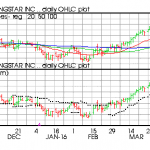Following up on our recent commentary, and with permission, we continue to quote the excellent work of Nick Colas and Jessica Rabe of DataTrek Research.
In this segment, Nick focuses on the question “Are cryptocurrencies an asset class?”
“Over my 30+ year career on Wall Street, I have seen scores of investments touted as an ‘Asset Class’. A few examples: US farm land, rare cars and watches, equity market volatility, livestock, high-end real estate, diamonds/rare gems, Asian and other antiques, and expensive artwork. Typically, such chatter picks up after a strong run-up in prices and feels like the smart money looking for an exit rather than a legitimate opportunity.

“For the fiduciary-minded investor, ‘Asset class’ has a very specific and important connotation/meaning. To reach that level of recognition, the assets in question should:
“• Be comprised of investments that have common fundamental characteristics and robust regulatory/legal structure
“• Be large enough in aggregate size to allow institutional liquidity, although this can vary depending on the investment (US equities vs. real estate, for example)
“• Provide non-correlated returns to other asset classes because of their unique fundamentals, so as to provide the benefit of diversification to asset owners
There is a lot of excellent academic work out there which analyzes investments through the lens of ‘Asset Class’, going all the way back to the 1980s (Gary Brinson et al are the most cited). Over the years, most institutional investors have adopted this work, making it a cornerstone of their investment process. The need for higher returns drives allocations to equities, for example. More conservative portfolios own more bonds. Cash, real estate, currencies, and commodities round out the menu. A place for everything, and everything in its place…
“Do cryptocurrencies like bitcoin meet the definition of an ‘Asset class’ for investors that care about that designation? At the moment, the answer has to be ‘No’. A few reasons why:














Leave A Comment